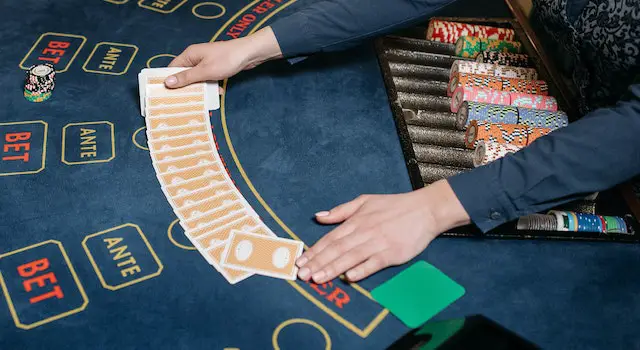How To Respond To Bet?
Say “I accept the bet” to indicate your readiness to take part and acceptance of the wager’s conditions.
You can respectfully decline the bet if you’re not interested in taking part or don’t agree with its terms.
Negotiate the terms: You might recommend discussing the terms if you have any reservations about the wager or wish to change a few requirements.
Types Of Bets

Numerous kinds of bets can be made in gaming and wagering. Understanding the various kinds of wagers is crucial, whether you enjoy gambling on sports, playing card games, or simply trying your luck.
Moneyline Bets
One of the easiest types of wagers, moneyline wagers, are frequently placed on sports, including baseball, basketball, and football. You are merely selecting the winner of a certain game or match when placing a moneyline wager. A positive or negative number serves as a representation of the odds for each team or person. A positive number represents the underdog, whereas a negative number symbolizes the favorite. For instance, if Team A’s odds are +150 and Team B’s odds are -200, a $100 wager on Team A would profit $150 if they won, while a $200 wager on Team B would profit $100.
Moneyline bets offer a simple approach to predicting a game’s result without worrying about point spreads or other complications. They are especially well-liked by casual gamblers who want a straightforward betting alternative.
Point Spread Bets
In sports like football and basketball, point spread bets, often known as spread bets or betting “against the spread,” are quite popular. In these wagers, the bookmaker establishes a line or spread by which it expects the favorite team to win. To balance the betting, the underdog is granted a point edge. An underdog team can win the game outright or lose by a margin smaller than the spread, whereas the favorite team must win by a margin bigger than the spread to win a point spread wager.
Take a football game as an example, where Team A is given a -7 point spread and Team B is given a +7 point spread. For your wager on Team A to win, they must defeat their opponent by a margin greater than seven points. In contrast, if you wager on Team B, they must either win or lose by less than 7 points for your wager to be successful.
Sports betting is already thrilling, but point spread wagers up the ante by offering chances to profit even when it’s unclear which team will win.
Assessing The Bet
Assessing the bet is an important stage when placing a wager, whether on a sporting event, a casino game, or any other type of gambling. Numerous criteria must be evaluated to calculate the chances of winning and any potential risks.
Research and Analysis
Research and analysis are the initial steps in evaluating a wager. Obtaining data on the teams, players, or other bet-related circumstances entails doing this. Studying team statistics, recent performance, injuries, weather, and head-to-head records can offer insightful information for sports betting. Understanding the rules, odds, and techniques of casino games can aid in making wise judgments.
Further context might be provided by researching past data and trends. For instance, knowing a horse’s past performance on a particular surface or distance might be useful information in horse racing. You may make better decisions and raise your chances of winning a wager by completing a thorough study and analysis.
Value and Odds
Long-term success depends on evaluating the value and odds provided for a wager. Value betting includes picking wagers when the bookmaker’s or casino’s odds are higher than the likelihood that the outcome will occur. In other words, it involves identifying wagers with a favorable expected value.
Compare the odds supplied by several bookies or casinos and compute the implied probability to determine the value. It can be a value bet worth considering if your analysis indicates that the likelihood of the result is higher than the odds predict.
Be conscious of any biases or disparities in the odds. Sometimes bookmakers or casinos give odds that favor particular results or take advantage of public emotion.
Crafting Your Response
Our daily lives depend heavily on communication, and being able to formulate a thoughtful response can have a big impact in a variety of circumstances. The way you respond can significantly affect the outcome of any situation, whether you’re responding to an email, having a conversation, or giving feedback.
Active Listening and Understanding
Engaging in active listening is crucial to comprehending the message or question being expressed before you decide how to respond. Spend some time hearing what the other person has to say, paying attention to both the words’ meaning and any underlying feelings. By doing so, you’ll be able to acquire all the information you need and make sure your response is pertinent and acceptable.
Ask for clarification if necessary if you have any questions. Make an effort to completely understand the other person’s viewpoint, worries, or expectations. You set the stage for a thoughtful and well-crafted response by exhibiting your attentiveness and knowledge.
Empathy and Respect
Responding with empathy and respect is essential since doing so promotes understanding and helps relationships grow. Try to put yourself in the shoes of the person you are reacting to and consider their feelings and viewpoints. Even if you don’t agree with their concerns or feelings, acknowledge them.
Using courteous and encouraging language is part of responding with empathy. Strive to validate the experiences or perspectives of the other person and refrain from being dismissive or critical. By displaying empathy, you foster an atmosphere of openness and trust, improving your response’s overall effectiveness.
Respectful communication also entails treating the other person with decency and respect. Avoid using any offensive or disparaging language, and speak courteously and professionally. Even in difficult or controversial circumstances, respectful communication fosters respect for one another and productive discussion.
Handling Bet-Related Disputes
There may occasionally be issues between gamblers, bookmakers, or casino owners regarding gambling and betting. These conflicts might involve anything from problems with payouts to disagreements about the legitimacy of bets. To ensure a fair settlement for all parties involved, knowing how to handle such situations appropriately is crucial.
Communication and Documentation
The key to solving any problem involving a bet is effective communication. It’s important to convey your issues or complaints to the appropriate party calmly and unambiguously, whether it’s a bookmaker, casino employee, or another bettor. Declare the dispute’s nature clearly and offer any pertinent information or proof to support your assertions.
In disputes involving bets, documentation is crucial. Keep track of all pertinent details, such as invoices, wagering slips, emails, screenshots, and other types of documentation that can support your claims. This documentation will facilitate the resolution process and will be an important piece of supporting evidence for your claim.
Keep lines of communication open with the people concerned and be receptive to any requests for clarification or more information. Record your discussion, including the times, dates, and parties involved. You can successfully handle the dispute resolution process by creating clear communication channels and maintaining accurate documentation.
Review Terms and Conditions
It’s important to carefully read the bookmaker’s or casino’s terms and conditions before placing a wager. These clauses provide an overview of the laws and guidelines governing the betting process and may be essential in settling disputes. Ensure you are familiar with and fully comprehend the terms and circumstances that apply to your wager.
In the event of a disagreement, all parties shall have the rights and obligations outlined in the appropriate terms and conditions. Pay close attention to the areas covering the legitimacy of bets, payout processes, and dispute resolution methods. You can demand your rights and expectations more successfully if you know the rules.
Fulfilling Your End Of The Bet
To uphold your integrity and respect your promises, fulfilling your half of the bargain is crucial when placing a bet or wager. Honoring your commitments is essential for the confidence and fairness of the betting process, whether it’s a casual bet between friends or a formal agreement with a bookmaker.
Honoring Deadlines and Agreed-upon Actions
Keeping to deadlines and the agreed-upon course of action is essential to upholding your half of the bargain. Meeting deadlines and keeping your promises is essential, whether it’s paying the agreed-upon sum, completing a particular assignment, or getting a certain result.
Maintaining confidence and trust requires being timely. If a payment is necessary, make it within the predetermined time frame. If the wager calls for a specific action or assignment, finish it within the deadline. In addition to undermining the bet’s integrity, missing deadlines or failing to take agreed-upon steps can harm relationships and reputations.
Displaying Sportsmanship and Grace
Sportsmanship and grace are crucial in both winning and losing situations. Be polite about your success if you win the bet. Be careful not to offend others or flaunt your accomplishments in front of them. Instead, congratulate yourself politely and with gratitude for everyone who took part.
On the other hand, if you lose the wager, gracefully accept the result. Do not try to evade your commitments or offer justifications. Accepting defeat with grace shows integrity and respect for the betting process. Remember that betting comprises both wins and losses, and your attitude toward failure says a lot about you.
FAQ’s
What should I do if someone asks me to place a bet?
Before responding, consider your personal values and the potential risks involved. If you’re comfortable with betting, ensure you have a clear understanding of the terms, odds, and potential consequences.
How do I politely decline a bet proposal?
Express your gratitude for the offer but politely decline, stating that you prefer not to engage in betting activities. It’s important to assert your boundaries respectfully.
What if I want to participate but have concerns about gambling addiction?
If you’re concerned about developing a gambling addiction, it’s advisable to avoid betting altogether. Seek support from trusted friends, family, or professional resources to address any underlying concerns.
How do I respond if I disagree with the terms of the bet?
Communicate your concerns and propose alternative terms that align more closely with your preferences. It’s crucial to reach a mutual understanding before engaging in any betting activity.
What should I do if I lose a bet?
Honor the terms of the bet and fulfill your commitment without hesitation. Losing is a part of gambling, and maintaining integrity is crucial, regardless of the outcome.
How do I handle a situation where the other party refuses to pay out after winning a bet?
If the other party fails to honor their commitment, calmly discuss the situation with them and remind them of the agreed-upon terms. If they still refuse, consider seeking mediation or legal advice to resolve the dispute.



















